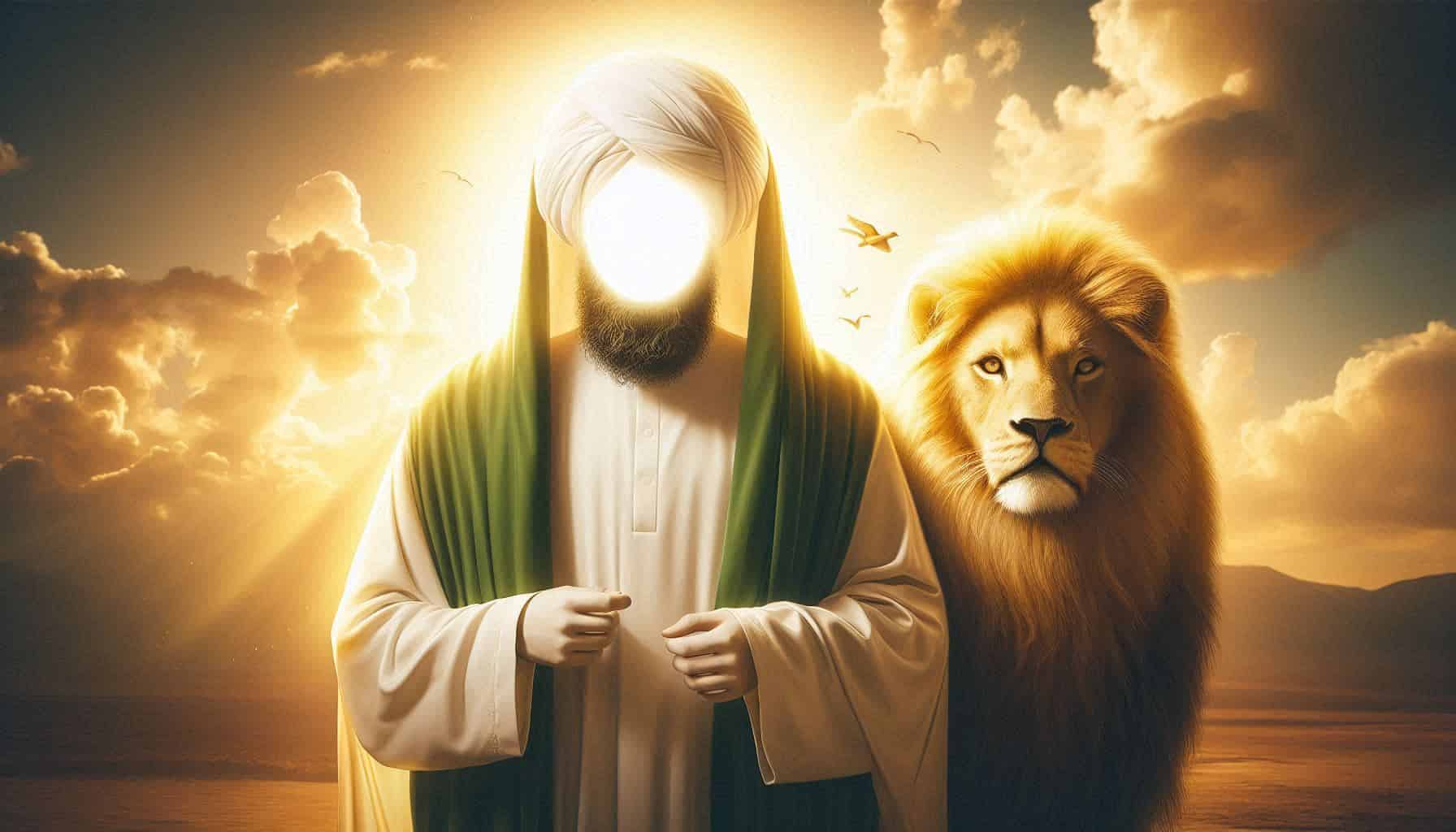Ala Hazrat Imam Ahmed Raza Khan Barelvi – A Spiritual Legacy
Part 1: Introduction and Early Life
Ala Hazrat Imam Ahmed Raza Khan Barelvi (1856–1921) is remembered as one of the greatest Islamic scholars of the Indian subcontinent. His name shines not only in the fields of Islamic jurisprudence and theology but also in spirituality, poetry, and literature. He was a reformer, a Sufi, a jurist, and above all, a lover of the Prophet ﷺ. Millions of Muslims across the world revere him for his extraordinary contribution to Islam and his deep spiritual insight.
Born in Bareilly, India, in 1856, Ala Hazrat belonged to a family of scholars and jurists. From an early age, his intelligence and devotion stood out. By the age of 13, he had already completed advanced Islamic studies. His sharp memory, deep understanding of Islamic sciences, and spiritual wisdom earned him respect even among senior scholars of his time.

Unlike ordinary scholars, Ala Hazrat combined knowledge with spirituality. His teachings were not limited to theoretical discussions; rather, they reflected the practical beauty of Islam in daily life. Whether it was jurisprudence, Quranic interpretation, Hadith studies, or Sufism, his writings and fatwas (Islamic rulings) became guiding lights for Muslims across generations.
Even in his teenage years, people began recognizing his extraordinary depth of knowledge. It is said that at just 13, he issued his first fatwa, which was later confirmed correct by the leading scholars of the time. This early brilliance gave him the title Ala Hazrat, a mark of honor that symbolizes the high rank he achieved.
Knowledge, Books and Contributions
Ala Hazrat Imam Ahmed Raza Khan Barelvi was not just a scholar; he was a polymath who mastered multiple branches of Islamic and worldly sciences. His works cover Fiqh (Islamic jurisprudence), Tafseer (Quranic interpretation), Hadith, Aqeedah (beliefs), logic, mathematics, astronomy, and even science.
One of his most famous contributions is the monumental work “Fatawa Rizvia”, a 30-volume collection of legal rulings. This masterpiece reflects his deep understanding of Islamic law and his ability to address the practical challenges of Muslims in his time. Even today, scholars refer to it as a reliable source of guidance.
Apart from jurisprudence, Ala Hazrat also wrote extensively on defending the honor of the Prophet ﷺ. His writings emphasized love for the Messenger of Allah and the importance of following his Sunnah. This central theme of devotion became a hallmark of his teachings.
He was also a great poet. His Naats (poems in praise of the Prophet ﷺ) are recited worldwide, filled with love, beauty, and spiritual depth. Perhaps the most famous is “Mustafa Jaan-e-Rehmat Pe Lakhon Salam”, which remains one of the most popular Naats among Muslims.
In addition, Ala Hazrat was a strong defender of Ahlus Sunnah wal Jama’ah. He wrote against false ideologies and protected the beliefs of the common Muslim from being misled. His scholarly debates and refutations safeguarded Islamic orthodoxy in the Indian subcontinent.

His contributions can be summarized in three main areas:
1. Scholarship and Fatwas – Guiding Muslims in matters of Shariah.
2. Poetry and Naats – Inspiring love for the Prophet ﷺ.
3. Defense of Sunni Creed – Protecting traditional Islamic beliefs from distortions.
Karamaat (Spiritual Miracles) – The Famous Lion Waqya
Throughout history, great scholars and saints of Islam have been blessed with Karamaat (miracles granted by Allah). Ala Hazrat Imam Ahmed Raza Khan Barelvi was no exception. His life is filled with many such extraordinary incidents that reflected his closeness to Allah and the honor he received as a true lover of the Prophet ﷺ.
One of the most well-known stories is the Lion Waqya.
It is narrated that during a journey, Ala Hazrat and his companions encountered a fierce lion blocking their path. The people around became terrified, fearing for their lives. But Ala Hazrat, with his deep trust in Allah, remained calm. Instead of showing fear, he looked at the lion and addressed it with dignity.
According to narrations, Ala Hazrat said:
“O Lion! Move aside, for this path is not yours but ours.”
Amazingly, the wild lion, which moments ago was roaring with power, suddenly became calm. It lowered its head and moved away respectfully, clearing the way for Ala Hazrat and his group to pass safely.
This event became a symbol of Ala Hazrat’s spiritual strength. It showed that even the wildest of Allah’s creations submitted before a saint whose heart was filled with the love of the Prophet ﷺ. For his followers, this story is not just a tale of bravery—it is a reminder of how trust in Allah and sincere devotion can overcome any fear.
Apart from the lion incident, many other Karamaat are recorded. People witnessed how his prayers brought blessings, how his words healed spiritual illnesses, and how his presence brought peace to gatherings. These miracles were never claimed as personal power, but always attributed to the mercy of Allah.
Legacy, Urs, and Global Influence
Ala Hazrat Imam Ahmed Raza Khan Barelvi passed away in 1921 (1340 AH) in Bareilly, India. His passing was not just the departure of a scholar, but the loss of a towering figure who had shaped the faith and practices of millions of Muslims. His shrine in Bareilly has since become one of the most visited centers of Islamic spirituality in South Asia.
Every year, during the month of Safar, millions of devotees gather at his shrine to commemorate his Urs (death anniversary). This gathering is not only a time for remembrance but also an opportunity for people to revive his teachings of love, peace, and devotion to the Prophet ﷺ. Speeches, Naat recitations, Quranic lessons, and collective prayers remind the world of the immense spiritual light Ala Hazrat left behind.
His legacy lives on through:
1. His Students and Scholars – Thousands of scholars trained under his guidance continued spreading his teachings.
2. His Books and Fatwas – Works like Fatawa Rizvia remain a source of reference in Islamic scholarship even today.
3. His Poetry – Naat collections such as Mustafa Jaan-e-Rehmat are recited worldwide, strengthening the love for the Prophet ﷺ in Muslim hearts.
4. Global Movement – The Barelvi movement, inspired by his teachings, now extends beyond India and Pakistan to the Middle East, Africa, Europe, and North America.
Ala Hazrat’s message was simple yet powerful:
Love for the Prophet ﷺ is the foundation of faith.
Follow the Sunnah with sincerity.
Protect the beliefs of Ahlus Sunnah wal Jama’ah.
Today, in an age of confusion and division, his works continue to provide clarity. For many Muslims around the globe, Ala Hazrat is not just a scholar of the past but a living guide whose light shines through his books, his poetry, and his followers.











Leave a Reply